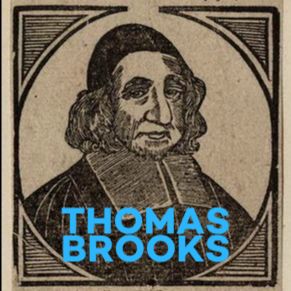“Though Satan has his devices to draw souls to sin, yet we must be careful that we do not lay all our temptations upon Satan, that we do not wrong the devil, and father upon him what is to be fathered upon our own base hearts. Man has such an evil root within him, that were there no devil to tempt him, no wicked men in the world to entice him, yet that cursed sinful nature that is in him would draw him to sin, though he knows beforehand that the wages of sin is eternal death. The whole frame of man is out of frame: the understanding is dark, the will cross, the memory slippery, the affections crooked, the conscience corrupted, the tongue poisoned, and the heart wholly evil, only evil, and continually evil. If God should chain up Satan, and give him no liberty to tempt the sons of men to vanity or folly, they would not, they could not but sin against Him by reason of that cursed nature that is in them. Satan has only a persuading sleight, not an enforcing might. He may tempt us, without ourselves he cannot conquer us. In every sin our hearts carry the greatest stroke: the fire is our wood, though it be the devil’s flame. Satan can never undo a man without himself; but a man may easily undo himself without Satan. Don’t excuse yourself by your accusing him.” Thomas Brooks, Helps Against Temptation, monergism.com/helps-against-temptation
Not much is known about Thomas Brooks, and most of what we have today is based on his writings and collected sermons. Historians believe he was born in a wealthy home in 1608 and entered Emmanuel College, Cambridge in 1625. However, it is uncertain whether he left before graduating or not. Brooks became an ordained minister in 1640 and a Chaplin for the English navy which he enjoyed. His times at sea were good for his soul as he said, “through grace I can say that I would not exchange my sea experiences for England’s riches.”
After the Civil War, he became the minister of St. Thomas the Apostle and then St. Margaret’s church. He was well recognized and had opportunities to preach in parliament before the House of Commons. But even a good report from the government, Brooks still lost his preaching license due to the Act of Uniformity. The Act required all ministers to use the Anglican prayer book to conduct worship services, prayers, sacraments, and other church structures. Brooks, like many other of his contemporaries (Thomas Goodwin, John Owen …), could not agree with this and preferred a Congregational view of church governance. Brooks did get his preaching license back in 1672 with the passing of the Declaration of Indulgence but lost it again in 1676.
Even with his battles with the government, Brooks did not stop preaching whenever the opportunity arose. He actually faced very little persecution at his congregational church in Moorfields not far from St. Margaret’s church. Even when the Great Plague of London (an estimated 100,000 people died out of an estimated population of 460,000) he did not leave London, unlike many other ministers, he faithfully tended to his congregation and city.
Brooks’ personal life also had challenges, but he always held fast to Christ. His first wife, Martha Burgess, “[a] godly woman whom he greatly treasured,” died in 1676. Brooks deeply loved Martha as he wrote, “[Martha] was always best when she was most with God in a corner. She has many a whole day been pouring out her soul before God for the nation, for Zion, and the great concerns of her own soul.” A few years after Martha’s passing Brooks married a notably younger woman, Patience Cartwright, before his passing in 1680.
Thomas Brooks has been recorded as a gifted preacher who had simple words, offered practical advice, and was full of Scripture pointing to Christ and His power. Charles Spurgeon had high praise for Thomas Brooks, and he even compiled an entire book of his sayings and illustrations. Spurgeon titled his book Smooth Stones Taken from Ancient Brooks and writes in the preface,
As a writer, Brooks scatters stars with both his hands: he hath dust of gold; in his storehouses all manners of precious stones. Genius is always marvelous; but when sanctified it is matchless. Had Brooks been a worldly man, his writings would have been most valuable; but since he was an eminent Christian, they are doubly so. He had the eagle eye of faith, as well as the eagle wing of imagination. He saw similes, metaphors, and allegories everywhere; but they were all consecrated to his Master’s service: his heart indited the good matter, for he spake of the things which he made touching the King. Charles H. Spurgeon, Smooth Stones Taken from Ancient Brooks, Preface (bold mine).
A recommended book by Thomas Brooks is Precious Remedies Against Satan’s Devices.

